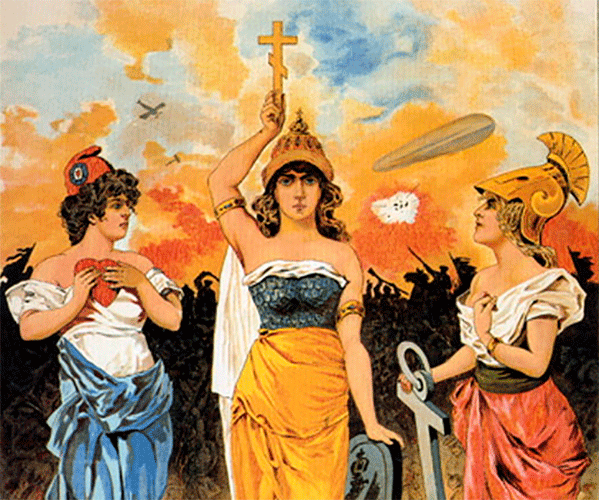The triple Alliance
The partition of Europe into hostile camps was founded in the years 1879-1882 the Triple Alliance which included Germany, Austria-Hungary and Italy. This military-political bloc played a crucial role in the preparation and outbreak of the First world war.
Initiated the creation of the Triple Alliance was Germany, which, in 1879, concluded with Austria-Hungary Treaty of Union. The Austro-German Treaty, also known as the Dual Alliance in the first place was directed against France and Russia. Subsequently, this agreement became the basis for the creation of a military bloc headed by Germany, after which the European state was finally divided into 2 hostile camps.
In the spring of 1882 to the Union of Austria-Hungary and Germany joined by Italy. May 20, 1882, these countries signed a secret Treaty of the Triple Alliance. According to the signed a period of 5 years, the agreement the allies had committed themselves not to participate in any agreements aimed against one of these countries, to provide mutual support and to consult on political and economic issues. All the participants of the Triple Alliance pledged in case of joint participation in the war not to conclude a separate peace and to keep the Treaty of the Triple Alliance secret.
By the end of the XIX century Italy under the yoke of the losses from the customs war with France gradually began to change its political course. In 1902, she had to conclude with the French agreement to neutrality in the event of an attack on France Germany. Before the outbreak of world war II Italy as the result of a secret agreement known as the London Pact, left the Triple Alliance and joined the Entente.
The allies
A response to the creation of the Triple Alliance was the creation in 1891 of the Franco-Russian Alliance that later became the basis of the Entente. The strengthening of the German striving for hegemony in Europe and the secret creation of the Triple Alliance led to retaliatory measures from Russia to France and then the UK.
In the early twentieth century Britain as a result of aggravated German-British contradictions had to abandon the policy of "splendid isolation", suggesting non-participation in any military blocs and to conclude a military-political agreements with the enemies of Germany. The Treaty with France, the British signed in 1904 and 3 years later in 1907 an agreement was concluded with Russia. Contracts actually issued the creation of the Entente.
The confrontation between the Triple Alliance and the Entente led to the First world war in which the Entente and its allies were opposed by a bloc of the Central powers led by Germany.
